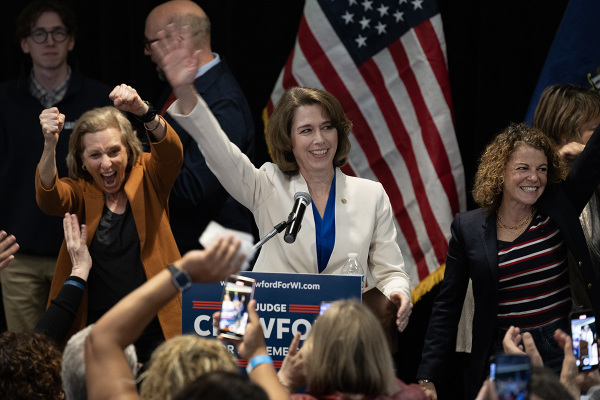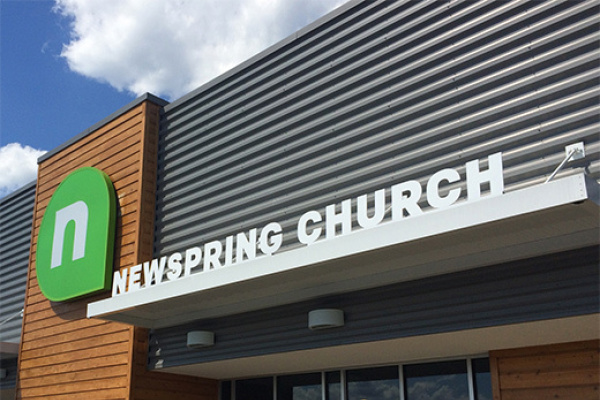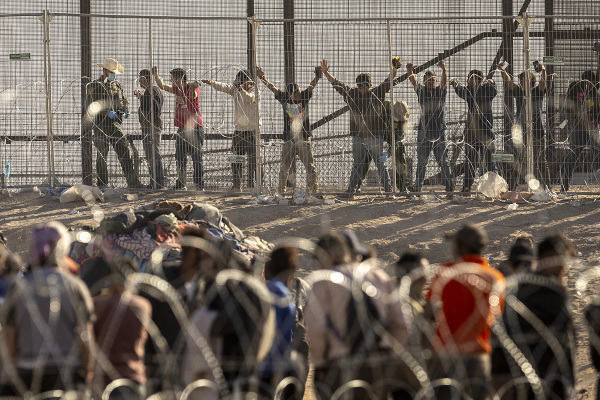ELCA Theologians of Color Focus on Leadership Recruitment
CHICAGO -- Members of the Evangelical Lutheran Church in America (ELCA) who teach theology in seminaries and who are people of color reflected on the church's process of recruiting individuals for leadership positions in the ELCA when they met May 8-10 in Las Vegas. More than 25 ELCA teaching theologians of color attended the meeting. "What makes this group unique among the larger gathering of teaching theologians is their knowledge and experience as scholars coming from ethnic communities that live on the margins of our society today," said the Rev. Gregory J. Villalon, director for multicultural leadership development and recruitment, ELCA Division for Ministry. Teaching theologians of color "bring fresh excitement and rich understanding to the teachings of the church, as well as a new focus on what it means to be a church in mission in a diverse and pluralistic world. That excitement spreads to students in our seminary," he said. Villalon said a great contribution that teaching theologians of color make is communicating the message to students of color and others who come from marginalized communities that there's room for them in the church. "It is exciting, different and inviting for students to see scholars of color in leadership positions in our predominately White seminaries," he said.
The participants' examination of leadership development and recruitment began with a reflection on how the historical segregation of people has contributed to the growth and development of the church. In a presentation called, "Another Look at Our History: The Margin as a Companion Traveler in the Growth and Development of the Church," the Rev. James Kenneth Echols, president, Lutheran School of Theology at Chicago, used the "Black experience" as a case study. Echols cited the story of Richard Allen -- born in 1760 as a slave named Absalom Jones -- who obtained freedom from his master and became a mission worker among the free Black population. Jones and his group walked out of St. George's Methodist Episcopal Church, a church in which segregated seats were set aside in the balcony for the "second class." Echols said that event has been identified with the rise of the independent Black Church movement in the North, a "movement in which Black Christians left White churches in protest of their second-class citizenship, of their marginalization in the life of the church."
"The ELCA is 97 percent White," said Echols. "Although the ethnic character of Lutheranism is no longer what it once was, the church bodies that ultimately came together to form the ELCA were the result of Norwegians, mid-western Germans, and Danes, while the [former] Lutheran Church in America was a merger of Eastern Germans, Swedes, Finns, Danes and Slovaks.
"Amidst all this merger and consolidation history, people of color and language have constituted a fairly insignificant footnote. To the degree that we have been present at all, we have been on the margins of a predominantly White church, seeking to find ways of moving into the mainstream of the tradition and denomination without sacrificing or abandoning our respective cultural backgrounds and heritages," said Echols.
"It is our unique perspectives that need to be authentically represented and embodied by people of color" in the ELCA, "for these unique perspectives constitute our contributions to the Lutheran tradition. Clearly, the seminaries and colleges of our church are key places for these perspectives to be shared and contributions to be made," he said.
Echols said the ELCA has a "new openness and invitation to marginalized communities to move into the mainstream of its faith and life. This movement can been seen in the increasing number of congregations and rostered leaders who are Native American, Latino, Asian American and African/African American. Both now and in the future, the progress of our church toward the full inclusion of marginalized people will be measured, among other ways, by the service of lay and rostered leaders in non-parish settings, including seminaries and church colleges."
In one session participants conducted an open conversation about the present state of multicultural leadership development in the ELCA. "Today, the ELCA only has 416 pastors of color serving in ministries of the church. These numbers will remain low if an increased emphasis is not placed on the identification, recruitment and support of students of color," Villalon said. The number of pastors in the ELCA is 17,672.
"The number of students of color attending seminary today is virtually the same number in the last 10 years," he said. The number of students of color enrolled in the eight seminaries of the ELCA is 55, "which is equal to the number of students of color participating in the ELCA's Theological Education for Emerging Ministries or TEEM program," he said.
TEEM prepares individuals who are perceived by the ELCA to possess those leadership abilities that are needed in specific communities such as African American, Black, Asian and Pacific Islander, Hispanic, American Indian and Alaska Native, Arab Middle Eastern, deaf, remote rural and inner city communities.
In another session, participants reviewed the ELCA's new strategic plan and "Sharing Faith in a New Century: A Vision for Evangelism in the Evangelical Lutheran Church in America," the church's comprehensive strategy for evangelism. The strategic plan and evangelism strategy will be presented to the 2003 ELCA Churchwide Assembly this summer. Villalon said participants raised concerns that as the ELCA moves forward with the new strategic plan and evangelism strategy, the progress made toward building multicultural ministry will not slow down or diminish, and that the evangelism strategy does not become a vehicle for oppressing "the marginalized communities" by "assimilating and changing" communities.
It has been more than nine years since teaching theologians of color have had the opportunity to meet with one another and discuss topics and issues unique to the group, Villalon said. Ideas were shared in terms of how teaching theologians of color can continue such conversations and take a more active role in impacting the ELCA as it moves in new directions for the future. They also expressed the need to recruit more ELCA members of color for the ordained ministry, Villalon said.
The Rev. George E. "Tink" Tinker, professor of cross-cultural ministries, Iliff School of Theology, Denver, said participants at the meeting "were able to form alliances and build mutual support for one another as Lutheran teaching theologians of color."
The value of such a meeting was the opportunity to "get together with others who understand what I'm saying without having to explain or teach them. White theologians can gather together in a variety of venues and have an immediate connection with one another. For teaching theologians of color, we're often alone among faculty, making it difficult to build a theological language that is ours," he said. For the Rev. Javier Alanis, assistant professor of theology, culture and mission, Lutheran Seminary Program of the Southwest, Austin, Texas, the meeting was "valuable in that theologians of color in the ELCA do not always have the opportunity to come together in a forum that addresses theological education from the perspective of our respective communities." He said the meeting allowed for the sharing of stories and experiences that are common, unique to theologians of color, and it affirmed their roles within theological education in the church. An important aspect of the meeting was being able to discuss the identification and selection of leaders for seminary training. The Rev. Winston D. Persaud, professor of systematic theology, Wartburg Theological Seminary, Dubuque, Iowa, said that outreach among members of the Guyanese community in the United States, for example, must address the fact that Guyanese immigrants have multi-religious and multi-ethnic identities. "Family, education and religious commitment and practices are held in high esteem by Guyanese immigrants, and the church must know that having worship in homes is highly valued," he said.
Participants agreed to meet at least every two years and will work to initiate a conversation with the ELCA's presiding bishop and other churchwide office leaders to discuss how teaching theologians of color can serve as a resource to the church, particularly on the future of multicultural ministries in the ELCA.
The ELCA has eight seminaries and two seminary extension centers. The Lutheran Seminary Program of the Southwest and the Lutheran Theological Center at Atlanta are the two extension centers.
By Albert H. Lee
chtoday_editor@chtoday.com






















